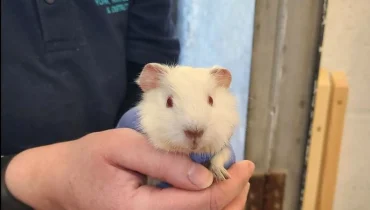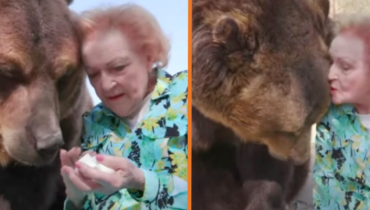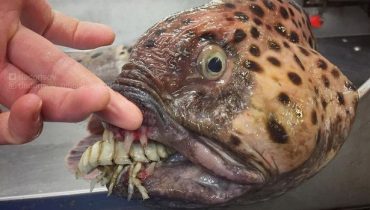Osteoarthritis in Dogs: Causes and Treatment Approaches

Posted July 3, 2023 by: Admin
Osteoarthritis is a common condition in dogs, not only affecting older canines, but also youngsters and adults with hereditary growth problems such as hip dysplasia. In addition to painkillers and anti-inflammatories prescribed by the vet, taking chondroprotective food supplements can relieve joint discomfort and improve the mobility of our furry friends.
What is osteoarthritis in dogs?
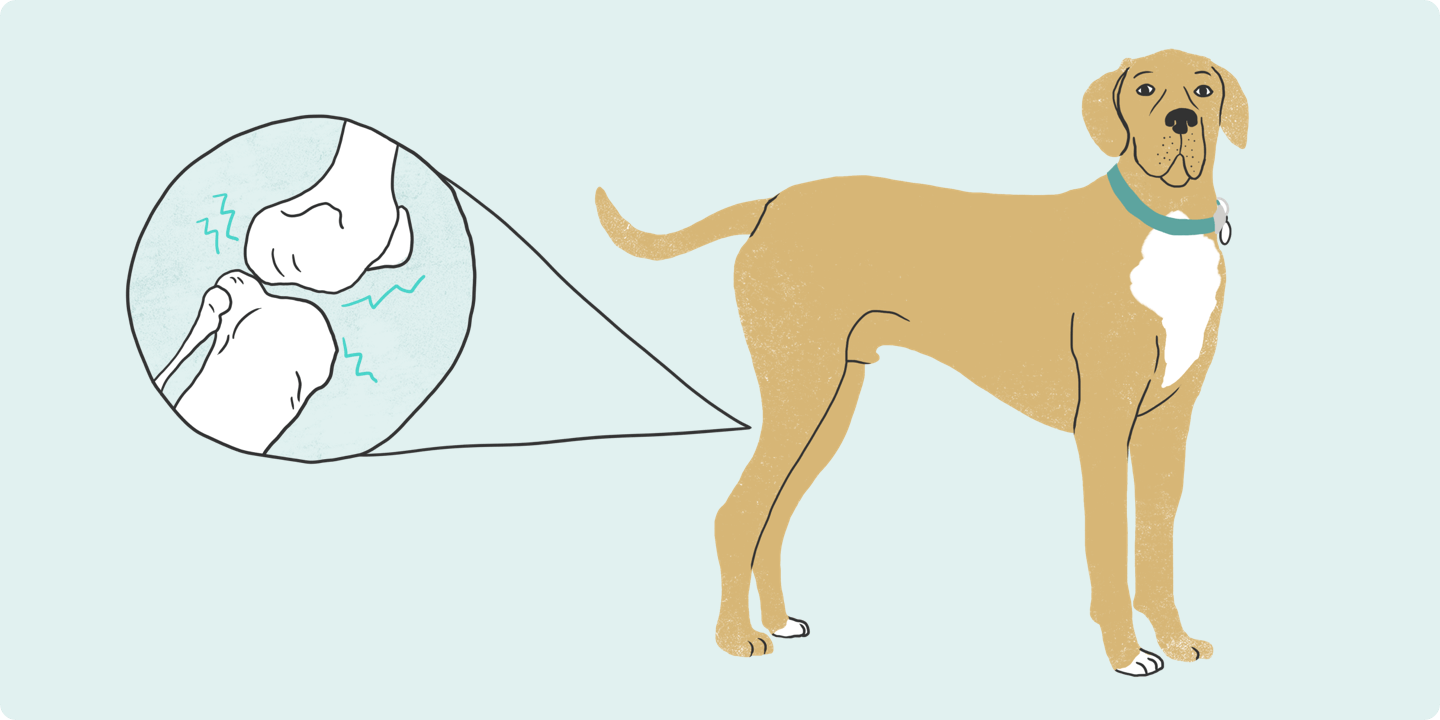
Osteoarthritis in dogs is a condition in which the cartilage in one or more joints gradually wears away and cannot be restored. It mainly affects joints such as hips, knees, elbows and other bony structures. Over time, as the condition progresses, it can cause increasing pain in our furry friends. There are two types of osteoarthritis: primary and secondary.
-
Primary osteoarthritis
Primary osteoarthritis is generally observed with age, and is associated with the natural aging process. As dogs age, the cartilage in their joints slowly erodes and its ability to repair itself diminishes. In the most severe cases, the cartilage may even disappear, affecting several joints simultaneously.
-
Secondary osteoarthritis
Secondary osteoarthritis can occur in some puppies as a result of abnormal forces exerted on their joints. This may be due to hip malformation (dysplasia), shoulder problems (osteochondritis dissecans), elbow problems, poorly healed fractures, ligament ruptures or congenital malformations.
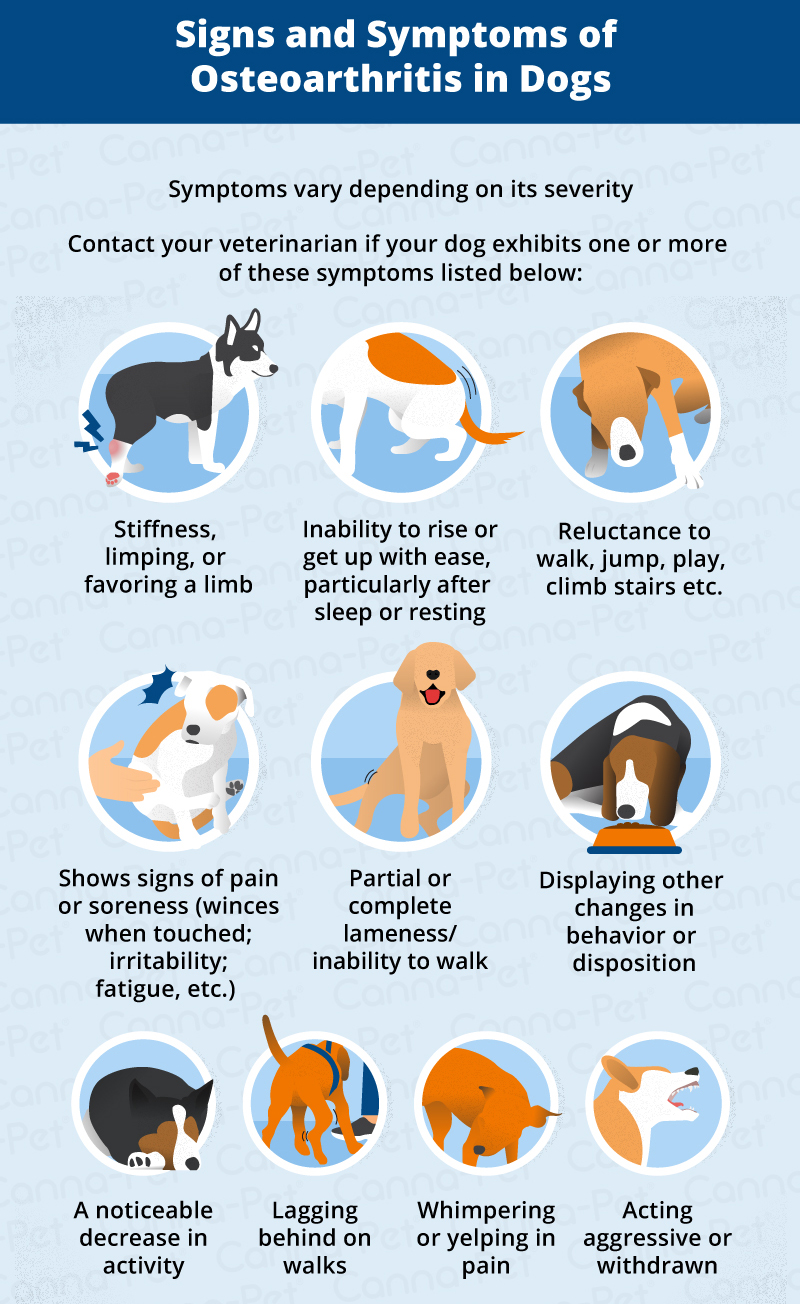
What are the causes of osteoarthritis in dogs?
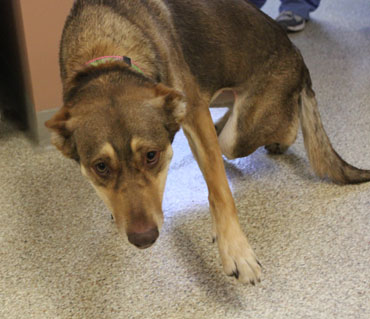
Osteoarthritis in dogs can have multiple causes, often resulting from a combination of various factors that reinforce each other.
-
Natural aging process:
Primary osteoarthritis occurs when the cartilage gradually wears down and loses its ability to regenerate. Older dogs commonly experience age-related osteoarthritis, which can affect multiple joints simultaneously.
-
Joint injuries:
Injuries such as poorly healed fractures, sprains, or inflammation can alter the alignment of bones, leading to inflammation within the affected joint. Abnormal bone healing can cause friction, ultimately resulting in osteoarthritis in dogs.
-
Genetic abnormalities:
Certain genetic abnormalities, including dysplasia, can contribute to osteoarthritis. Dysplasia typically affects larger or giant breed dogs like German Shepherds, Bernese Mountain Dogs, Labradors, and others. Responsible breeders of these specific breeds actively work to prevent the spread of dysplasia by excluding affected dogs from breeding programs.
-
Feeding disorders and obesity
When it comes to puppies, it’s important to provide them with a diet suited to their age, size and activity level, taking into account whether or not they’ve been sterilized. If puppies are overweight or obese, this can lead to increased stress on their joints and musculoskeletal system, resulting in accelerated wear and tear. This situation becomes particularly worrying as dogs age and become less active, as excess weight can increase the risk of developing osteoarthritis.
-
Appropriate physical activity
It’s vital to ensure that puppies get the right amount of physical activity, especially to protect their joints. Over-exertion during activities such as long runs or climbing stairs too frequently can contribute to the onset of osteoarthritis, particularly in large and giant breeds, which are more susceptible. It is advisable to introduce daily exercise gradually and to ensure that it is well-balanced, in order to promote their general well-being.
Improving joint health in arthritic dogs: diet and supplements

A number of dietary treatments and supplements can have a positive impact when it comes to supporting joint mobility and overall health in arthritic dogs. Certain vitamins, omega-3 essential fatty acids and cartilage protectors such as glucosamine and chondroitin sulfate have been clinically proven to have significant benefits. Incorporating these products into your dog’s lifestyle can help improve joint function and well-being.
Glucosamine: Naturally produced by the body, this molecule plays a crucial role in the synthesis of glycosaminoglycans, the essential building blocks of cartilage. Glucosamine is derived from chitin, a substance found in the shells of crabs, lobsters and shrimps. There are several positive effects of glucosamine supplementation in the fight against the onset of osteoarthritis in dogs. Firstly, it helps delay cartilage degradation, thus preserving its integrity. In addition, it stimulates the production of cartilage cells, helping to regenerate and repair damaged tissue. Finally, it has anti-inflammatory properties that relieve your four-legged friend’s joint pain.
Chondroitin: similar to glucosamine, chondroitin is a naturally occurring substance in dog cartilage. It also comes from the chitin found in crabs, shrimps, lobsters and prawns. In particular, chondroitin contains silica, a mineral that plays a crucial role in tissue strength and overall health. Incorporating chondroitin into your dog’s diet can stimulate the rebuilding of damaged cartilage. What’s more, chondroitin has anti-inflammatory properties, helping to relieve joint pain and discomfort.
Harpagophytum (devil’s claw): This medicinal plant, native to South Africa, contains a natural anti-inflammatory compound called Harpagophytum procumbens.
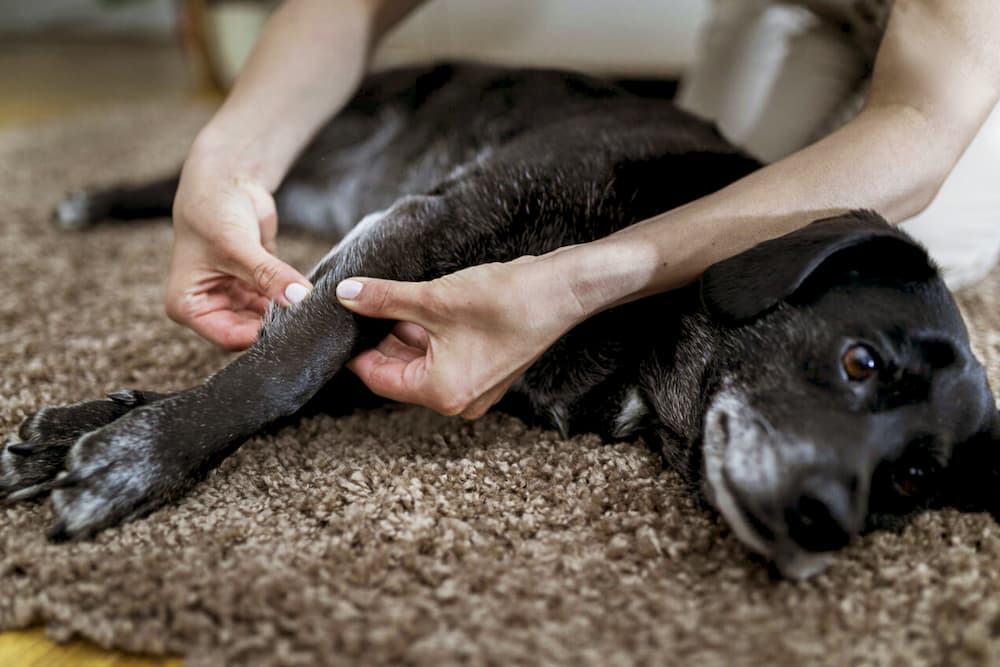
Horsetail: Equisetum arvense, commonly known as horsetail, contains silica, which helps maintain osteo-articular balance in older dogs. Silica is essential for the synthesis of glucosaminoglycans, hyaluronic acid and other molecules vital to the health of cartilage, bone, skin and the immune system. Unlike the silicon found in beach sand, the organic form of silicon found in horsetail can be efficiently assimilated by the body.
Omega-3 fatty acids: In addition to their role as natural anti-inflammatories, omega-3 fatty acids have been shown to be beneficial in managing joint health.
Specialized Dog: If your dog suffers from well-established joint problems, you can choose from a variety of dog foods and pâtés specially formulated for osteoarthritis. These foods are enriched with beneficial chondroprotectors that can help alleviate symptoms and improve your dog’s condition. It’s important to note that this type of adapted food is an integral part of a complete disease management program and should be prescribed by your veterinarian. He can assess your dog’s specific needs and recommend the dietary approach best suited to his joint health.





